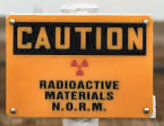Chapter 3
Initial Value Problems
 3.2 An Initial Value Problem: A Cooling Body
3.2 An Initial Value Problem: A Cooling Body
Exercises
- Differentiate each of the following functions.
- `ftext[(]t text[)]=3-t^2`
- `ftext[(]t text[)]=e^(-3t)`
- `ftext[(]t text[)]=3-e^(-t)`
- `ftext[(]t text[)]=1-e^(-3t)`
- `ftext[(]t text[)]=t-e^(-3t)`
- `ftext[(]t text[)]=t^3-e^(-t)`
- `ftext[(]t text[)]=t^4-4^t`
- `ftext[(]t text[)]=t^3-e t^2+1`
- `ftext[(]t text[)]=e^(-3t)-3t^2+3t^3`
- `ftext[(]t text[)]=3+7t-2^t+3^t`
- Find three solutions of each of the following differential equations.
- `(dy)/(dt)=-7y`
- `(dy)/(dt)=-7t`
- `(dy)/(dt)=-1.07y`
- `(dy)/(dt)=-1.07t`
- Find the solution of each of the following initial value problems.
- `(dy)/(dt)=-7y` with `y=20` at `t=0`
- `(dy)/(dt)=-7t` with `y=20` at `t=0`
- `(dy)/(dt)=-1.07y` with `y=2.3` at `t=0`
- `(dy)/(dt)=-1.07t` with `y=2.3` at `t=0`
- `(dy)/(dt)=-7(y-10)` with `y=20` at `t=0`
- `(dy)/(dt)=-7(t-10)` with `y=20` at `t=0`
- `(dy)/(dt)=-1.07(y-10)` with `y=2.3` at `t=0`
- `(dy)/(dt)=-1.07(t-10)` with `y=2.3` at `t=0`
-
- If `z=10+8e^(-kt)` for all `t` and `z=14` when `t=1`, find `k`.
- If `u=10-8e^(-kt)` for all `t` and `u=4` when `t=1`, find `k`.
- If `z=10+8e^(-0.693t)` for all `t`, find `t` when `z=12`.
- If `u=10-8e^(-0.288t)` for all `t`, find `t` when `u=1`.
- Suppose the detective's two measurements had been 26 and 25įC.
- What would the time of death have been?
- Whom would you have the detective arrest in this case?
- A company is considering two ways to depreciate a piece of capital equipment that originally cost `\$`14,000 and is worth `\$`10,000 after one year:
Method I assumes the equipment depreciates at a rate proportional to the difference between its value and its scrap value of `\$`400.
Method II assumes the equipment depreciates linearly, that is, at a constant rate.
- Using method I, find the value of the equipment at the end of 2 years and at the end of 3 years.
- Using method II, find the value of the equipment at the end of 2 years and at the end of 3 years.
- Which method produces faster depreciation?
-
Figure E2 is a diagram of an electrical circuit with a resistance of `R` ohms, an inductance of `L` henries, and a battery (i.e., a constant voltage source) of `V` volts. If the current (in amperes) at time `t` (in seconds after closing the switch) is `i=itext[(]t text[)],` then the voltage drop at the resistor is `R i`, and the voltage drop at the inductor is `L (di)/(dt).` According to Ohmís Law, the voltage input `V` must balance the voltage drops, that is,Figure E2 An RL circuit 
`L (di)/(dt)+R i=V.`
- Find the current as a function of time. (Hint: Compare with Newton's Law of Cooling.)
- If the switch is left closed for a long time, what is the limiting value of the current?
-
 Radioactive substances tend to decay at a rate proportional to the amount present at any given time. Let `y_0` be the amount of a radioactive substance present at time `t=0`, and let `y=ytext[(]t text[)]` be the amount present at any time `t`.
Radioactive substances tend to decay at a rate proportional to the amount present at any given time. Let `y_0` be the amount of a radioactive substance present at time `t=0`, and let `y=ytext[(]t text[)]` be the amount present at any time `t`.
- Write an initial value problem whose solution is `ytext[(]t text[)]`.
- Solve your initial value problem to find a formula for `ytext[(]t text[)]`.
- The half-life of a radioactive substance is the time it takes for a given amount to decay to half that amount. Find an expression for half-life that depends only on the proportionality constant in your differential equation.

